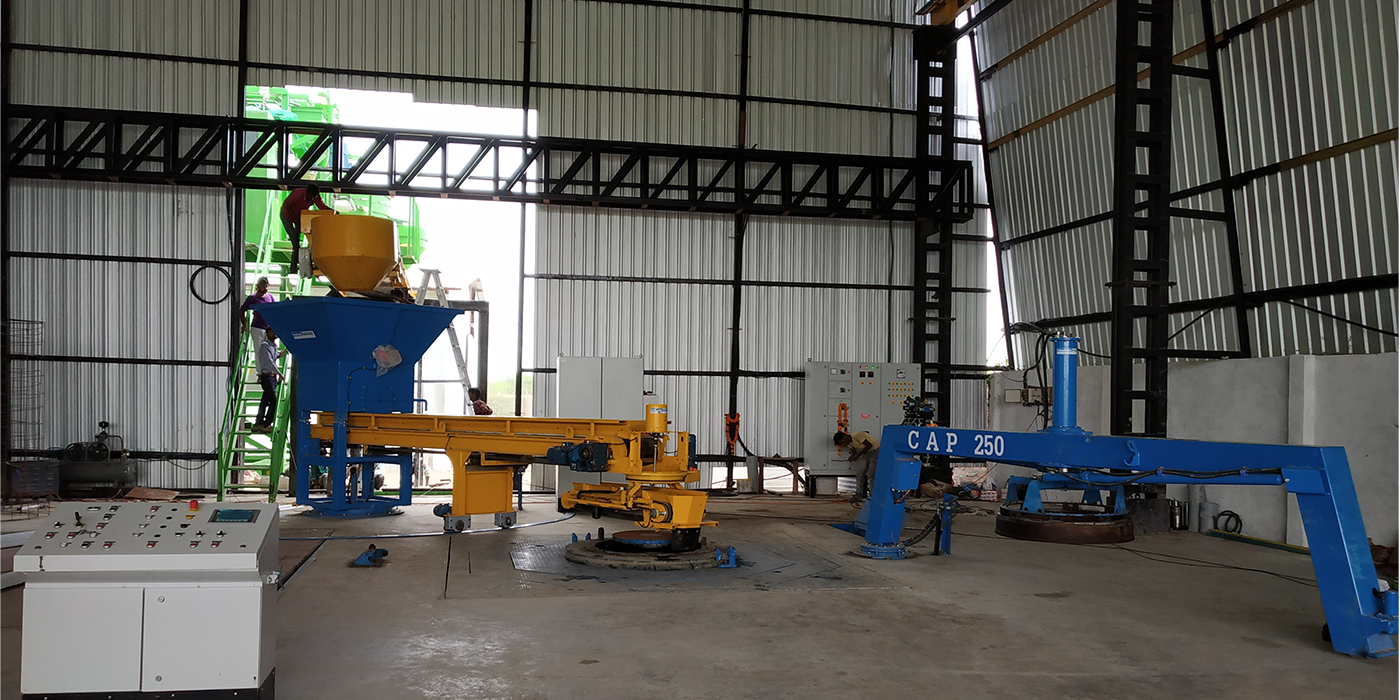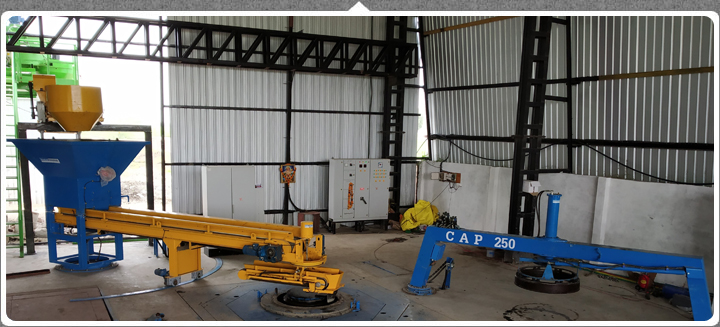
The concrete pipe industry has seen significant advancements in recent years, with innovations aimed at improving efficiency, precision, and durability. Among these breakthroughs, pipe pallets have emerged as a revolutionary component in the production process. These indispensable tools, used in conjunction with modern machinery, enhance the quality and consistency of concrete pipes. This article explores the role of pipe pallets, their applications, benefits, and the technology behind their integration into concrete pipe production.
What Is a Pipe Pallet?
A pipe pallet is a specially designed platform used in the manufacturing of concrete pipes. It serves as a base to support the concrete during the forming process, ensuring stability and accurate shaping. Pipe pallets are typically made from high-strength materials like steel or cast iron to withstand the rigors of industrial production.
Role of Pipe Pallets in Concrete Pipe Production
Pipe pallets are integral to the operation of concrete pipe machines, facilitating efficient and accurate pipe formation.
- Provide a sturdy base during the moulding process.
- Support the weight of the concrete to maintain shape and dimensions.
- Ensure consistency in the production of pipes of various sizes.
- Minimize deformation during curing and handling.
Materials Used in Pipe Pallet Manufacturing
1. Steel
- Offers high durability and strength.
- Resistant to wear and tear.
2. Cast Iron
- Combines strength with lightweight properties.
- Suitable for high-volume production lines.
Applications of Pipe Pallets
Pipe pallets are used across a wide range of applications in the concrete pipe industry:
1. Storm Water Management Systems
Support the production of pipes used in drainage systems for managing rainwater and preventing flooding.
2. Sewage Systems
Ensure precision in pipes designed to transport wastewater in municipal and industrial projects.
3. Irrigation Systems
Facilitate the production of durable pipes for agricultural water distribution.
4. Industrial Applications
Used in producing pipes for transporting chemicals and waste materials.

Benefits of Using Pipe Pallets
Enhanced Pipe Quality
The rigid and stable structure of pallets for concrete pipe machines ensures uniform dimensions and surface finish, enhancing the overall quality of the final product.
Increased Efficiency
By streamlining the moulding and curing processes, pipe pallets reduce production time and increase throughput.
Cost-Effectiveness
Durable pipe pallets minimize the need for frequent replacements, lowering operational costs over time.
Versatility
Pipe pallets can accommodate different sizes and types of concrete pipes, offering flexibility in production.
Environmental Sustainability
By improving production efficiency and reducing material wastage, pipe pallets contribute to more sustainable manufacturing practices.
Pipe Pallet Equipment and Technology
Modern pipe pallet equipment integrates advanced technology to improve the production process:
1. Automated Handling Systems
Facilitate the movement of pallets within the production line, reducing manual labor and speeding up operations.
2. Robust Materials
High-strength steel or composite materials ensure durability and resistance to wear and tear.
3. Precision Engineering
State-of-the-art machining ensures that pallets meet exact specifications, contributing to consistent pipe quality.
4. Customizable Designs
Equipment allows for the production of pallets tailored to different pipe sizes and shapes.
Integration of Pipe Pallets in Modern Concrete Pipe Process
Pallets for concrete pipe machines are seamlessly integrated into automated production lines, enhancing efficiency and reducing errors.
Production Process Overview
- Preparation: Pipe pallets are positioned within the moulding machine, ready to receive the concrete mix.
- Moulding: Concrete is poured and compacted over the pallet, with the mould ensuring precise shaping.
- Curing: The pallet provides structural support as the pipe cures, maintaining its shape and integrity.
- Demoulding and Handling: Once cured, the pipe is removed along with the pallet for further processing or transport.
Factors to Consider When Choosing Pipe Pallets
1. Material Quality
Opt for pallets made from high-grade materials to withstand repeated use and heavy loads.
2. Compatibility
Ensure the pallet design matches the specifications of your pipe making machine.
3. Durability
Select pallets with coatings or treatments that resist wear, corrosion, and deformation.
4. Customization
Work with manufacturers to develop pallets tailored to unique production requirements.
FAQs About Concrete Pipe Production
A pipe pallet serves as a base in concrete pipe production, supporting the concrete during moulding, curing, and handling to ensure consistent quality.
Pipe pallets are typically made from high-strength materials like steel, cast iron, or composites for durability and long-term use.
Pipe pallets provide stability and precision, ensuring uniform dimensions and reducing production errors. They also streamline the moulding and curing processes, enhancing efficiency.
Yes, manufacturers offer customizable designs to meet specific project requirements, including unique pipe sizes and shapes.
Not all pipe pallets are universally compatible. It’s essential to select pallets that match the specifications of your pipe-making equipment.
Conclusion
Pipe pallets have transformed concrete pipe production by enhancing efficiency, precision, and sustainability. As technology continues to advance, these tools will play an even greater role in meeting the growing demands of the construction industry. By investing in high-quality pipe pallet equipment and working with reputable suppliers, manufacturers can achieve superior results while optimizing their operations.
Recent Articles
- Box Pallets & U-Drain Pallets: Essential Components in Modern Drainage Systems
- How Manhole Moulds and Box Moulds Shape Modern Construction Projects?
- How High-Quality Pipe Moulds Improve Concrete Pipe Production?
- How Advanced Concrete Pipe Machinery is Revolutionizing Manufacturing Efficiency?
- Vertical Vibrated Casting for Concrete Pipes Quality Enhancements





 BACK TO ARTICLES
BACK TO ARTICLES